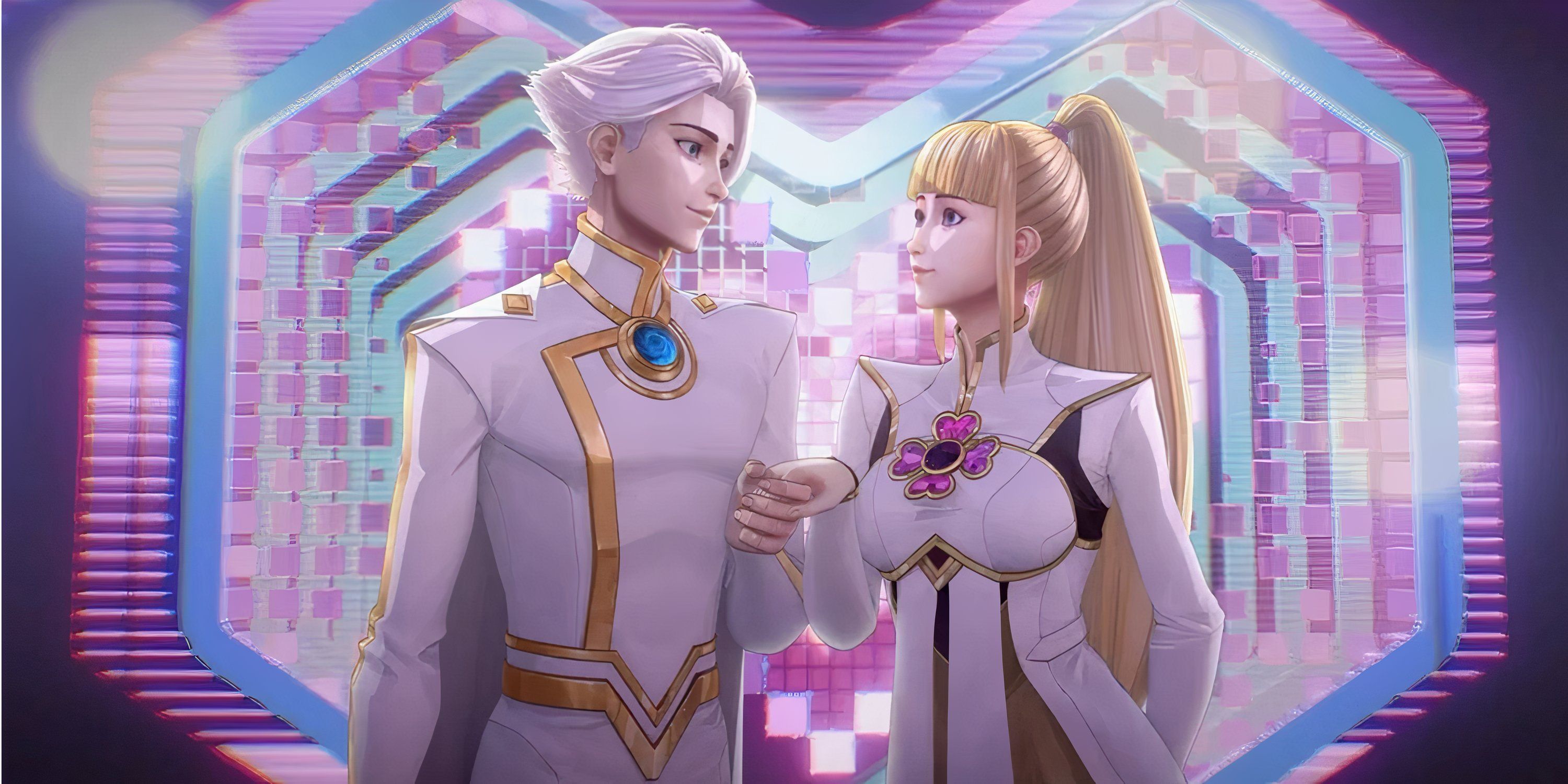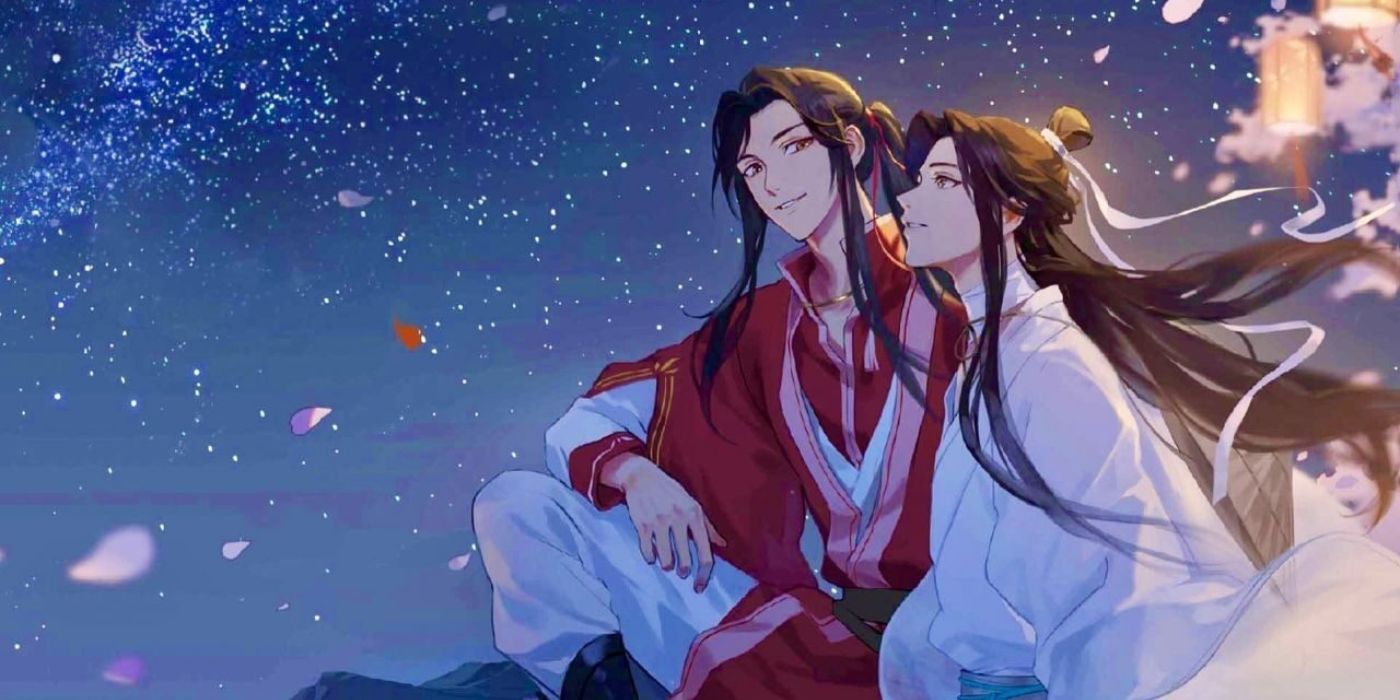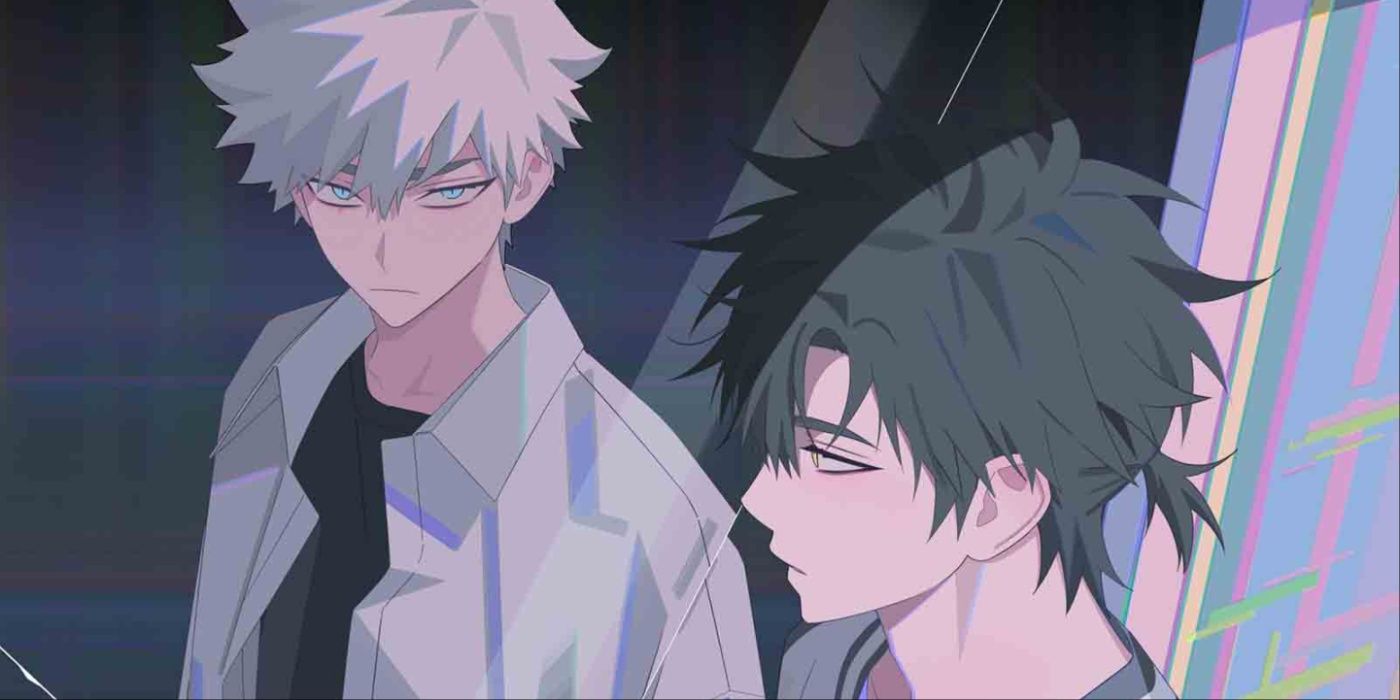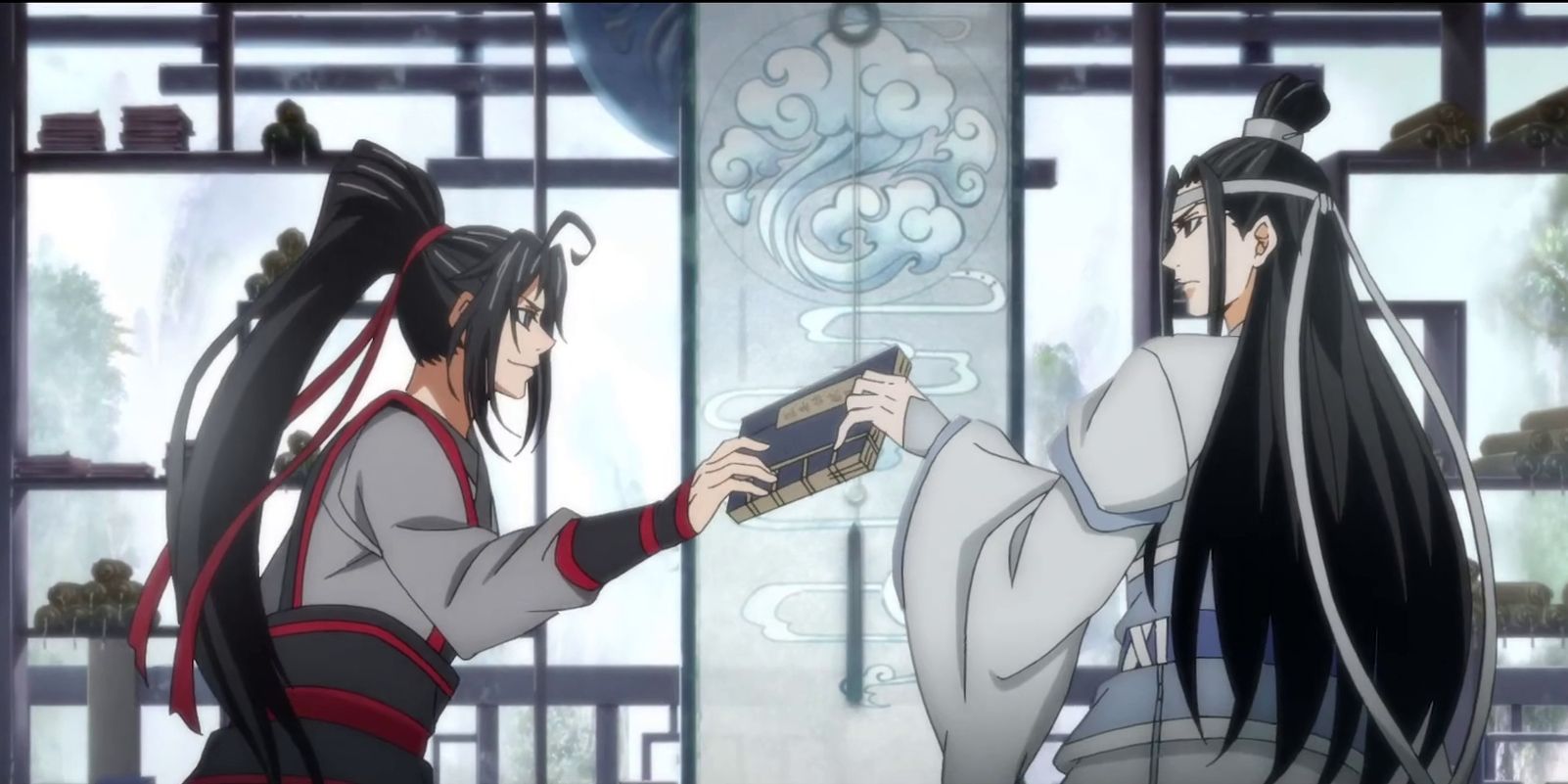
Over the past three decades in the West, anime has expanded significantly and gained immense popularity across various domains. Today, it plays a significant role in shaping pop culture as its influence can be felt everywhere. From celebrities launching clothing lines inspired by Naruto, Goku’s image adorning ramen restaurants in New York City, to Megan Thee Stallion featuring Yuji’s English voice actor in one of her songs, it’s clear that anime has left an indelible mark on our society. Furthermore, the world has embraced anime so much that its scope has expanded to accommodate animation from multiple countries, demonstrating just how far-reaching its influence has become.
Chinese animation, often referred to as “donghua,” has been captivating global audiences, challenging the dominance of Japanese anime in certain spheres. Series such as “Heaven Official’s Blessing“, “Grandmaster of Demonic Cultivation“, and “Link Click” have garnered popularity that rivals popular shonen anime series. The surge of donghua in the West is a captivating sight, as they present unique yet familiar styles for viewers to engage with. The success of “To Be Hero X” demonstrates that donghua isn’t going out of fashion anytime soon, and it’s intriguing to witness its rise in popularity.
The Rise of Chinese Animation
There Are a Lot of Reasons Why Donghua Is So Popular




The surge in Western popularity for donghua can be attributed to several factors, but one significant aspect that deserves attention is the growing interest in queer romance in the West. Many popular series initially started as web novels, a format known for its frequent updates and lengthy storylines. These web novels often provide updates ranging from 3,000 to 8,000 words and feature numerous characters, making them easy to access and engaging for readers. As per Chinese analytics firm iResearch, there are approximately 145 million overseas readers of Chinese web novels at present. Remarkably, two of the most favored series, Heaven Official’s Blessing and Grandmaster of Demonic Cultivation, are tales of queer romance.
Historically, it’s been thought that the popularity of certain series, particularly those in the wuxia genre, was largely fueled by female fans who enjoyed creating and engaging with fanworks centered around the romantic relationships between male characters in the series. Consequently, women were often the initial key contributors to a series’ success, and many donghua (Chinese animated television series) cater to their audience’s preferences. The wuxia genre frequently emphasizes deep relationships between men, which is a significant factor that attracts this audience. Engaging stories featuring handsome male characters with long-lasting, well-written romances keep viewers hooked and contribute to the series’ success.
The buzz surrounding the anime adaptation of “Heaven Official’s Blessing” was unprecedented among Western donghua audiences, largely due to the widespread popularity of its source web novel. For quite some time, discussions about the series could be found on platforms like Tumblr and Twitter, with “Grandmaster of Demonic Cultivation” being a close runner-up in terms of excitement. Since then, there has been an increase in interest for various genres of donghua, as demonstrated by titles such as “Link Click” and “To Be Hero X”. Furthermore, animations like “Spare Me Great Lord” and “Scissor Seven” have pushed the boundaries of what the medium is capable of.
Anime vs. Donghua
To the average viewer, donghua and anime might appear quite similar. However, upon closer inspection, there are significant differences between these two forms of animation. One major distinction lies in their approach to character portrayal – donghua places more emphasis on the fluidity of movements, whereas anime focuses more on intense facial expressions.
Anime has undeniably influenced some aspects of the “shonen” style in donghua. Yet, donghua often draws inspiration from Chinese history and culture, particularly the wuxia genre, which is significantly represented within it. Donghua leans towards realism while anime delves deeper into emotionality, a trait that can sometimes lead to overused tropes.
Donghua has successfully established itself within the world of anime due to its diverse genres and strong allure for female audiences. Additionally, its unique presentation sets it apart from others in its field, constantly exploring new animation techniques, which adds to its broad appeal. It’s worth noting that as Donghua grows in popularity, so does the representation of Chinese settings within anime.
Hero X skillfully merges the finest aspects from both anime and donghua, resulting in a captivating media that resonates strongly. Anime has grown to embrace Chinese culture more, while donghua has expanded its reach – particularly after shows like Tiger & Bunny, which introduced many to enjoying superheroes within the anime genre. The remarkable success of To Be Hero X in such a brief period suggests that donghua’s future is even brighter.
China Is Informing More Anime Now
Anime Series Like The Apothecary Diaries Are Incredibly Popular
Observing the surge in Western appreciation for donghua, I notice an increasing number of anime series adopting a style reminiscent of ancient China. Titles like “Raven of the Inner Palace” draw inspiration from China’s rich historical tapestry, delving into the wuxia genre without focusing heavily on martial arts. This trend appears to be growing as donghua explores various genres, while anime continues to pay tribute to Chinese settings in its own unique way. However, it’s essential to note that there are distinct differences between these two forms of animation.
In mainland China, numerous anime series remain unavailable due to strict censorship regulations. Some series are completely prohibited, such as “Attack on Titan”, while others undergo significant alterations before broadcasting. Consequently, Mandarin dubs of anime are less common because they wouldn’t attract the same audience as German or English dubs. Additionally, certain genres like isekai anime, which may draw inspiration from Chinese culture, rarely receive Mandarin dubs. This censorship also impacts homegrown content, such as “Heaven Official’s Blessing”, which must tone down explicit depictions of romance and rely more on audience interpretation to avoid violating the censorship rules.
It appears that cross-cultural collaboration in content creation often leans towards a unidirectional flow due to stringent laws regarding content in China. However, certain series are starting to shift towards a more collaborative dynamic. For instance, the animated series To Be Hero X, which is a joint production between Japanese and Chinese animation studios, demonstrates this change. Currently, it consists of only five episodes, yet it has already garnered significant attention from viewers, despite its precursors falling short in quality. The donghua industry is brimming with activity, and as it becomes more accessible, it’s expected to capture a larger share of the anime market.
Will Donghua Continue to Grow?
Donghua Definitely Isn’t Slowing Down
Currently, it’s evident that donghua has firmly established itself as a significant contender in the anime world. Conversations about “Wind Breaker” often lead to discussions about “Link Click.” The boundaries between donghua and anime have become increasingly blurred due to their interconnected fan bases. This season, “To Be Hero X” has garnered considerable attention, even while competing against “My Hero Academia: Vigilantes” and the second season of “The Apothecary Diaries.” Remarkably, it has managed to command a significant share of spotlight amidst such fierce competition.
In essence, donghua continues to thrive. The anticipation for the next season of Heaven Official’s Blessing remains high, and Seven Seas Entertainment has profited significantly by publishing the web novels for purchase. Over the past decade, the market for donghua has been expanding steadily, and Netflix’s frequent airing of Chinese dramas that influence donghua contributes greatly to its spread. In the anime world, donghua is a dominant force, capturing conventions and leaving no doubt about the immense appetite for something unique.
Read More
- Gold Rate Forecast
- tWitch’s Legacy Sparks Family Feud: Mom vs. Widow in Explosive Claims
- OM PREDICTION. OM cryptocurrency
- Oblivion Remastered: The Ultimate Race Guide & Tier List
- 25+ Ways to Earn Free Crypto
- Solo Leveling Season 3: What You NEED to Know!
- Meet the Stars of The Wheel of Time!
- Why Gabriel Macht Says Life Abroad Saved His Relationship With Family
- The Monkey – REVIEW
- Stan Lee Documentary Exposes Alleged Elder Abuse in Final Years of Marvel Creator’s Life
2025-05-05 07:42